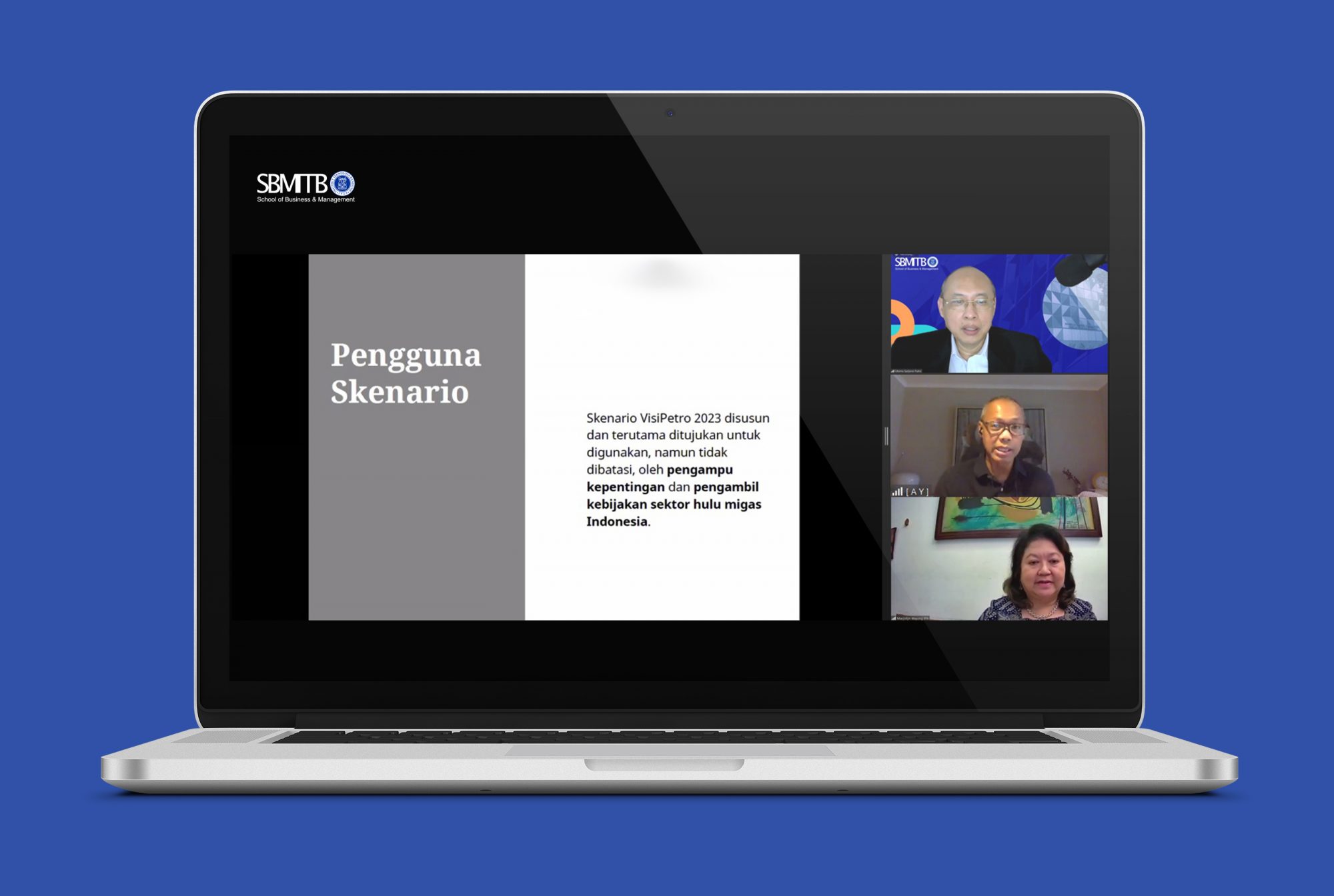Written by Student Reporter (Deo Fernando, Entrepreneurship 2021)
Towards one-year of Jokowi – Ma’ruf Amin cabinet, SBM ITB provided the formulation of policy recommendations in energy and transportation sectors. “Scenario planning is the most appropriate method in uncertainties, for instance, in this pandemic caused by COVID-19,” said Dean Prof Utomo Sarjono Putro in the webinar entitled “Quo vadis one year of Indonesia Maju cabinet: What is the future of energy and transportation scenarios?”
Utomo Sarjono Putro as a professor in decision and negotiation said that the government could use scenario planning to formulate the future full with uncertainties and to plan options and strategic implications needed to undertake. Utomo added, one of the SBM ITB missions was to develop and disseminate knowledge for business, government, and society. “In particularly within this pandemic where upstream oil and gas as well as public transportation were greatly affected,” said the Dean (15/10/2020).
VisiPetro scenario for future upstream petroleum
An energy expert in the Center for Policy and Public Management (CPPM) SBM ITB, Ahmad Yuniarto explained three future scenarios in the upstream petroleum sector faced by Indonesia until 2023. Named as VisiPetro, Ahmad said that the scenarios as follow: Puting Beliung, Musim Barat, and Pancaroba. The former CEO of Schlumberger revealed that the three scenarios showed the atmosphere in the upstream oil and gas industry in Indonesia influenced by pandemic management and industry consolidation. “Puting Beliung scenario is the situation when the impact of the pandemic is uncontrollable and upstream oil and gas industry is in chaos,” said Ahmad Yuniarto.
Although the impact of the pandemic was managed effectively by the government, according to Ahmad, the upstream oil and gas went nowhere because the investment was not conducive. It was what Ahmad referred to Musim Barat. “A hope emerges within the Pancaroba scenario. It is when the impact of the pandemic is managed effectively and the upstream oil and gas industry begins to re-organize by prioritizing multiplier effect, not only state income,” told the energy expert.
Responding to that, Executive Director for Indonesian Petroleum Association (IPA) Marjolijn Wajong added, “We need to anticipate the risk-mitigating steps that appears from each scenario in the future.” The most important thing for this sector that had been contributed more than IDR 300 trillion, said Meti, was a collaboration among stakeholders to fix investment climate and performance of upstream petroleum industry in Indonesia.
The webinar was hosted by Yudo Anggoro, Ph.D., lecturer and Director CPPM SBM ITB. Yudo concluded, “Both scenarios VisiPetro for upstream oil & gas energy and Post-Normal for public transportation are our effort to take an evidence-based-policy approach in formulating the policy.”




